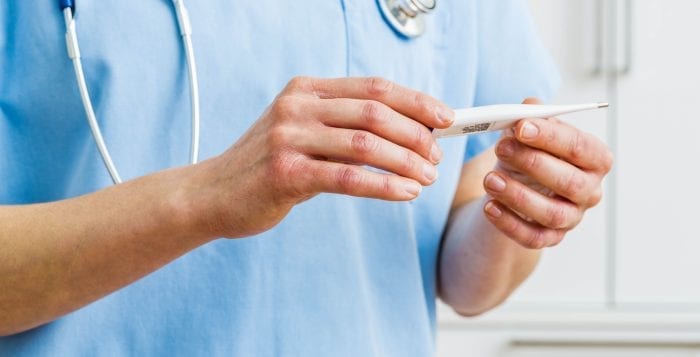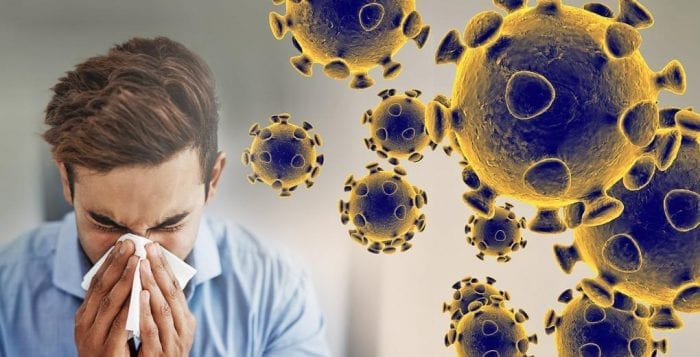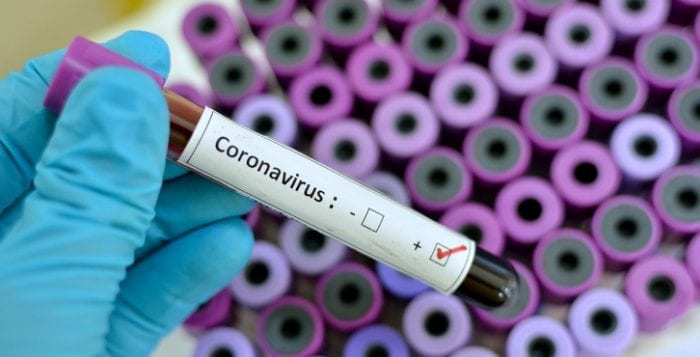The uncertainty of the coronavirus has led many people to avoid public places that see a lot of foot traffic. Some have resorted to hunkering down at home. With the first confirmed cases of coronavirus reported in Suffolk County this past week, despite efforts to sanitize their locations, some local businesses owners have been seeing the impact directly.
Since the outbreak began in China late last year, Asian American and Chinese restaurants and businesses have seen a decline in the number of customers.

Kevin Ma, co-owner of Sei Ramen in East Setauket, acknowledged the drop-off in business.
Business “for area restaurants, it’s going down,” he said. “I have friends that run their own businesses and they are going through the same thing.”
Since opening last month, Ma believes they have been doing OK and hopes to see an uptick in customers once the coronavirus scare dies down.
“All we can do is let customers know the food is safe [to eat],” he said. “We are making sure everything is clean and sanitized.”
Gary Pollakusky, president and executive director of Rocky Point Sound Beach Chamber of Commerce, said the fears of coronavirus are affecting businesses in the area.
“I spoke to two Chinese restaurants [that are chamber members], they don’t want this to affect them,” he said.
Pollakusky said misinformation on the coronavirus has caused the reduction in business, especially to the new owners of the Great Wall, a Chinese restaurant in Sound Beach.
“The fears of the people toward Chinese food are irrational — people shouldn’t be afraid of eating local,” he said. “The Great Wall in Sound Beach has new owners and they are very excited to be a part of this community.”
The executive director said all businesses are taking the proper precautions and safety measures to make sure its facilities are clean.
Libraries also see a lot of visitors and are trying to stay a step ahead.
Ted Gutmann, director at Emma S. Clark Memorial Library in Setauket, said they are closely monitoring the situation.
“We take the health and the safety of our patrons very seriously,” he said. “We have ordered additional cleaning supplies to clean surfaces, computers, keyboards and other areas.”
Gutmann said if patrons feel sick, he would advise them not to come to the library.
“We have tried to be proactive, we haven’t really seen a decrease in attendance at the library,” the director said.
At this point, Emma Clark has not decided to cancel any upcoming events but has had internal discussions about the problem, should the overall situation gets worse.
Debbie Engelhardt, director of Comsewogue Public Library, had similar sentiments.
“We haven’t noticed a change in attendance,” she said. “We are trying to be proactive, just washing our hands is part of our daily routine.”
Engelhardt said they already had numerous sanitizers installed throughout the building.
“We increased signage reminding employees and patrons to wash their hands,” she said. “If employees are sick, we have told them to stay home — we are monitoring information from the state and county. We are trying to stay educated, we have a responsibility as a public service building.”
“We are making sure everything is clean and sanitized.”
— Kevin Ma
Several local groups have been canceling events. The Three Village Democratic Club, Three Village Historical Society and Three Village Community Trust have all canceled or pushed off events out of a sense of caution.
Brookhaven Town has released an executive order canceling all town events for senior citizens due to coronavirus concerns. Those events are suspended beginning March 12. Meals on Wheels deliveries will continue to homebound seniors, while those previously served by congregate nutrition programs at senior centers will be offered meal delivery at home.
Residents can call 631-451-8696 for more information.
Despite the preparation, other businesses said they haven’t seen much of an impact so far.
Bobby Suchan, general manager of Port Jeff Bowl, said besides less people coming into bowling alleys in general, they haven’t seen a change in business as of now.
“We have installed more hand sanitizer in the building and just making sure everything is clean, which is something we always do,” he said.
Charlie Ziegler, director of operations at Holiday Inn Express Stony Brook, said it’s business as usual at the hotel.
“It’s not having an effect [on us] — the number of customers coming is the same,” he said.
Despite that, Ziegler said they will continue to make sure everything in the building is cleaned and sanitized.
“We had a meeting recently with the staff and we told them to make sure to wash their hands constantly,” he said. “We want to keep areas clean … we are disinfecting areas like the great room, telephones and door handles.”
Ziegler said they don’t anticipate any further disruptions from the coronavirus situation.













